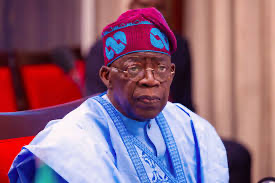The Tripartite Committee on Minimum Wage is scheduled to reconvene on Tuesday, May 23, in a bid to reach a consensus on a new minimum wage for Nigerian workers.
This follows a dramatic walkout by organized labor on May 15, in response to what they deemed an unsatisfactory proposal from the government.
The chairman of the committee, Bukar Goni, has extended an invitation to labor leaders, urging them to rejoin the negotiations.
According to the invitation letter, other members of the committee have expressed a willingness to reconsider the previously proposed figure of N48,000, which had been tabled during a meeting on Wednesday.
The letter from Goni appealed to labor leaders to communicate with their members and attend the upcoming meeting.
The appeal comes in the wake of significant tension between the government and organized labor, represented by the Nigeria Labour Congress (NLC) and the Trade Union Congress (TUC).
The labour organizations are demanding a substantial increase to a new minimum wage of N615,000, a stark contrast to the government’s initial offer.
Adding to the complexity of the situation, the organized private sector has also made an offer, albeit a modest one, proposing an initial minimum wage of N54,000.
The impasse reached a boiling point when labour leaders, feeling disrespected and unheard, walked out of the talks and subsequently held a press conference to express their frustration.
They squarely blamed both the government and the private sector for the breakdown in negotiations.
The urgency of these discussions is underscored by the looming deadline of May 31.
The Federal Government has yet to present a nationally acceptable minimum wage, despite the significant public attention and the symbolic importance of Labour Day on May 1.
This failure has intensified the friction between labour and the government. NLC President Joe Ajaero has been vocal about the demand for an N615,000 minimum wage.
He argues that this figure is based on a thorough analysis of the current economic hardships, exacerbated by rising living costs, and the essential needs of an average Nigerian family of six.

Ajaero and other labor leaders have set a firm deadline, insisting that the government must meet their demands by May 31.
His ultimatum follows the earlier establishment of the Tripartite Committee on January 30, by Vice President Kashim Shettima. The 37-member committee, which includes representatives from federal and state governments, the private sector, and organized labour, is tasked with recommending a new national minimum wage.
At the committee’s inauguration, Vice President Shettima emphasized the importance of a swift resolution.
He urged the committee members to work diligently and submit their report promptly, highlighting the critical need for a timely submission to facilitate the implementation of a new minimum wage.
The call for a new minimum wage has grown louder, particularly in light of the soaring cost of living, a situation further aggravated by the recent removal of the fuel subsidy.
As the May 23 meeting approaches, all eyes will be on the Tripartite Committee, with hopes pinned on a resolution that balances the needs of Nigerian workers with the economic realities facing the government and the private sector.
This ongoing saga is a testament to the complexities of economic negotiations in a country grappling with significant fiscal challenges and social demands.
The outcome of these talks will not only affect the livelihoods of millions of Nigerian workers but also set a precedent for future labor relations in the country.
As such, the reconvened meeting on May 23 is not just another round of negotiations; it is a critical juncture in the fight for fair wages and economic justice in Nigeria.




